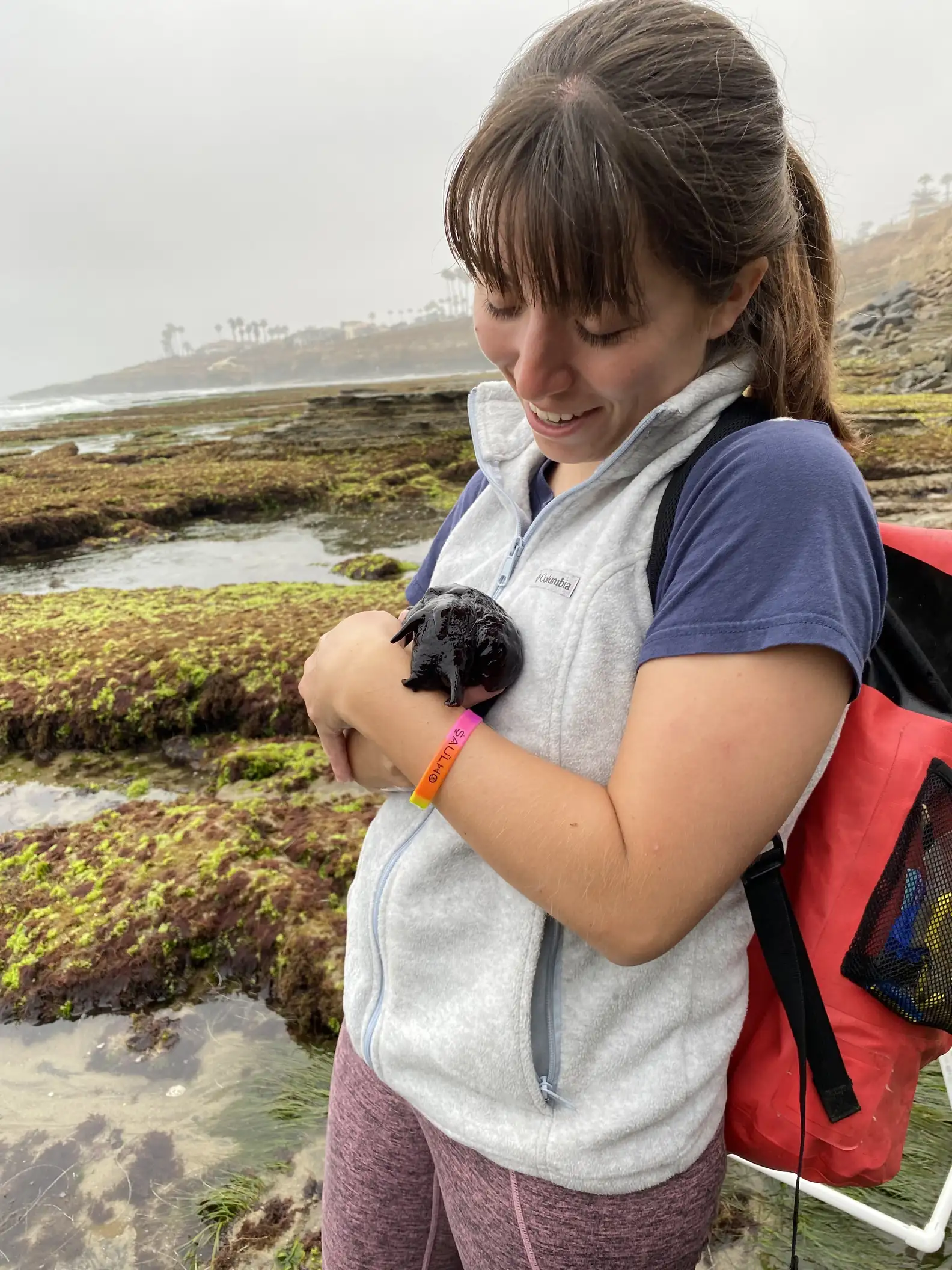“They’re just big babies 😍 A team of researchers from Chapman University recently scoured California’s beaches in search of sea slugs, essential for their climate change research. These slugs are tiny, requiring meticulous searching to locate. Along the way, however, they encountered their close relatives — sea hares.
Sea hares, scientifically known as Aplysia, are surprisingly large and almost resemble little sea puppies. The researchers find them delightful and are thrilled whenever they get a chance to interact with them.
“The student researchers have grown quite fond of Aplysia because they’re friendly and curious about us,” explained Dr. Richelle Tanner, assistant professor of environmental science and policy. “They’re always excited to see them and gently interact with them when we come across them.”
Equipped with scientific permits from the California Fish and Wildlife Department, the researchers handle wildlife with great care and expertise. Despite their affection, they ensure the sea hares’ safety by employing proper handling techniques. This includes supporting their entire foot and limiting their time out of the water, although the sea hares often seem to enjoy the attention.
“We handle them carefully, always mindful of their well-being,” Tanner emphasized. “Sea hares are intertidal animals accustomed to fluctuating tides. While they rarely release ink or mucus with our handling methods, they’re surprisingly calm and curious, exploring our hands with their sensory organs located on their faces.”
To raise awareness about their research, the team shared TikTok videos showcasing students cuddling with sea hares, sparking varied reactions.
“The response has been mixed — some people adore it, while others find it unsettling,” Tanner noted. “We’re glad many are interested in learning more, which we’re eager to facilitate.”
Sea hares inhabit shallow waters globally, thriving in tide pool crevices where they feed on algae and lay their eggs undisturbed.
Dr. Tanner and her students are deeply passionate about studying sea hares and sea slugs, creatures that offer valuable insights into climate change resilience.
“Sea hares are remarkably resilient to climate change effects, adapting well to temperature increases and environmental fluctuations,” Tanner added. “This resilience makes them pivotal in understanding ecosystem health and adaptation.”
